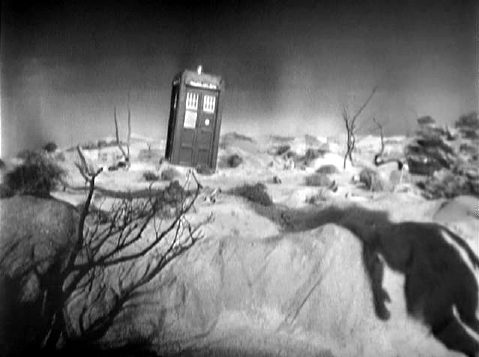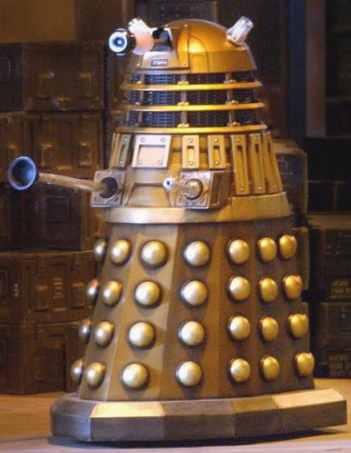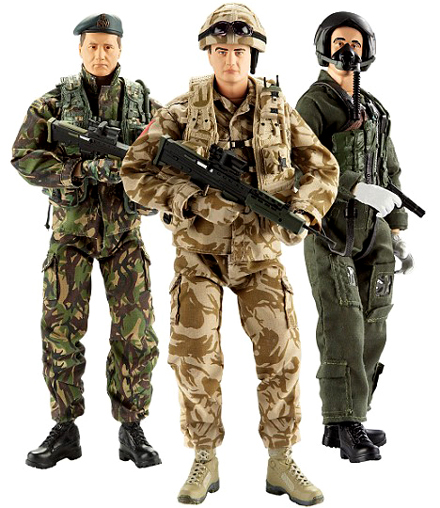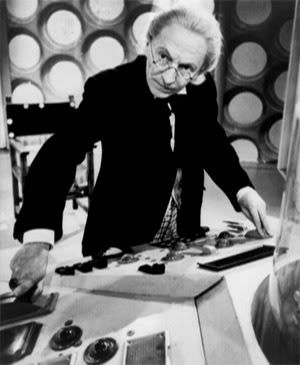 Like many people in Britain, I watched the Doctor Who Easter special.
Like many people in Britain, I watched the Doctor Who Easter special.I've been watching Doctor Who, on and off, since the first episode. I'm a fan.
I've often been impressed by the way in which science fiction, speculative fiction, fantasy and graphic novels consider possibilities for society and ethical dilemmas. It's hard to avoid doing this when creating other species, worlds, super-powers, futures, etc.

One of the themes of the revived Doctor Who, for instance, has been the Doctor's relationship with the daleks, who have destroyed his home planet and all the people on it. The conventions of the series demand that he fight the Doctor, but episodes have raised the question of whether, in doing so, he becomes the same kind of inhuman killing machine as them. Non-violent resistance is never raised as a possibility but the series does assume that it's possible to make friends with aliens (the Doctor is an alien himself) and to find the good in individuals and species.
The Easter episode was a disappointment. I had high hopes of what would happen when a London bus was whisked through space to a distant galaxy. But the characters were rather obvious and the most threatening aliens looked disconcertingly like skate. The whole thing ended with a mixture of shoot-up and hair's breadth escape but I didn't feel much anxiety about the outcome. The Doctor and bus passengers had to re-start the bus and make it fly again. Meanwhile on earth the police and army massed with the usual fairly-ineffective-against-aliens weapons. There was brief consideration of an ethical dilemma, when the army commander suggested closing the fabric of space, which would kill the Doctor and bus passengers, so that the rest of humanity would be saved. Somehow I knew the Doctor would make it.
But the closing minutes did worry me - and not because a few of the skate-aliens swam-flew the fabric of time and to be shot by women and men with guns..
Among the bus passengers whisked through space were two lads who did their best to help, engaging in such necessary activities as shovelling sand and tinkering with the engine. They were presented as typical teenagers without many plans for their present, let alone their future - but they were moderately engaging characters. The Doctor - usually the voice of moral authority in the series - recommended them to the army commander as useful recruits, suggesting that a stint in the army was all they needed to sort them out. And that bit of army propaganda in a children's TV programme was too much for me.
 As job opportunities plummet, there's a huge increase in the activity of the recruitment and public relations branches of the armed services. New advertisements urge young people to "Start thinking soldier" by playing online video games which offer a limited number of choices. The videos say they are "intended purely for users aged 16 and over." That warning is probably a huge draw for a number of under-16s, who may be attracted from the army recruitment site's Teen Zone, where 13-16 year-olds are encouraged to play other computer games by joining Camouflage and getting access to "piles of free stuff".
As job opportunities plummet, there's a huge increase in the activity of the recruitment and public relations branches of the armed services. New advertisements urge young people to "Start thinking soldier" by playing online video games which offer a limited number of choices. The videos say they are "intended purely for users aged 16 and over." That warning is probably a huge draw for a number of under-16s, who may be attracted from the army recruitment site's Teen Zone, where 13-16 year-olds are encouraged to play other computer games by joining Camouflage and getting access to "piles of free stuff".But promoting the army start with younger children. My son was about seven when he first asked for an Action Man toy. We were both unhappy with the military theme but there's a shortage of male dolls for boys. I compromised with Action Men engaged in non-violent activities: driving a moon buggy for instance and scuba-diving. They seemed to increase the scope for imaginative play.
Since then, Action Man has fallen out of favour in Britain so that the toy is no longer marketed in Britain. The Ministry of Defence (public relations division) has seen a gap in the market.
 They are sponsoring dolls under the "HM Armed Forces" brand which will be dressed for combat in Iraq and Afghanistan with suitably scaled-down replica equipment.
They are sponsoring dolls under the "HM Armed Forces" brand which will be dressed for combat in Iraq and Afghanistan with suitably scaled-down replica equipment.The Ministry of Defence assures us that these aren't a recruiting toy but a matter of "public relations" - and that's quite a different thing.
So presumably the dolls - and the TV campaign and the video games and the Camlouflage website - aren't supposed to persuade under-16s that they should join the army. They are just supposed to convince children that, whatever their parents think, the wars in Iraq and Afghanistan are a good thing and lots of fun. I don't suppose the Ministry of Defence is encouraging the production of toy blood and wounds and wheelchairs, let alone any games that involve post-traumatic stress or dead and wounded civilians.
I don't feel happy at the idea of children playing games that involve killing Iraqis and Afghans. I loathe these toys. And it worries me that, as the army recruitment and public relations machine reaches out to young children, Doctor Who has also been conscripted to tell us that slightly under-achieving teenagers would blossom and fulfil their potential in the army. He didn't mention that they would be trained to kill or that they might end up injured or dead.
I suppose it's a coinicidence that Character Group plc, which is developing the new army action figures in association with the Ministry of Defence, also markets and distributes Doctor Who action figures.
